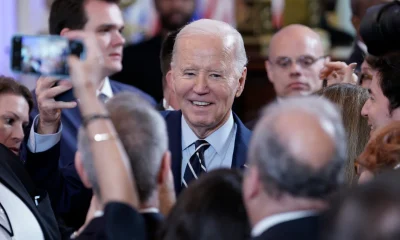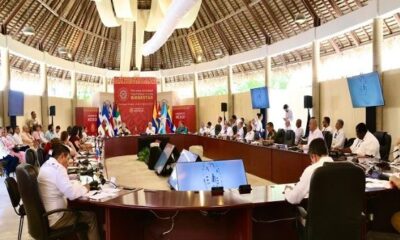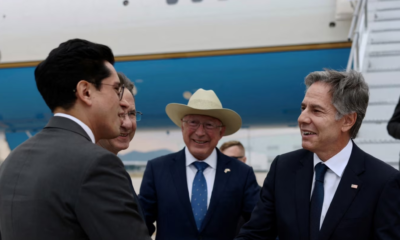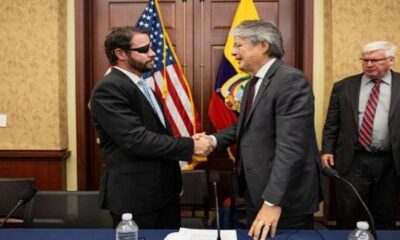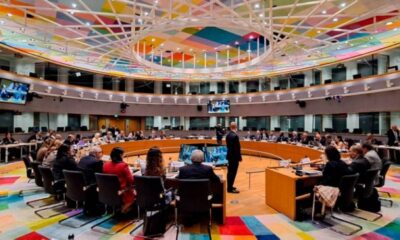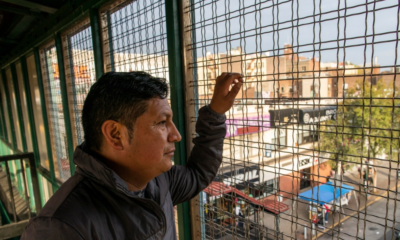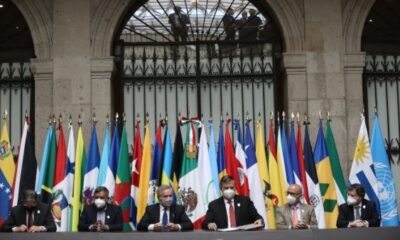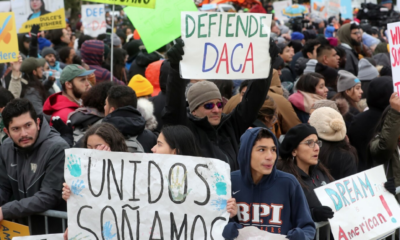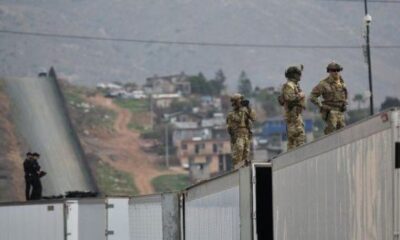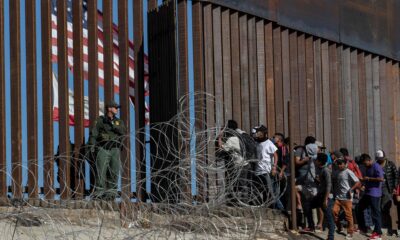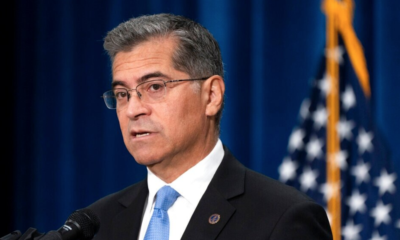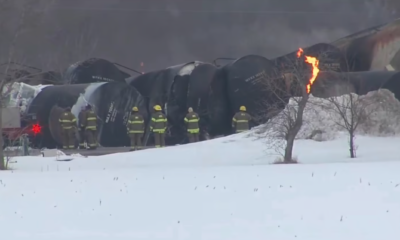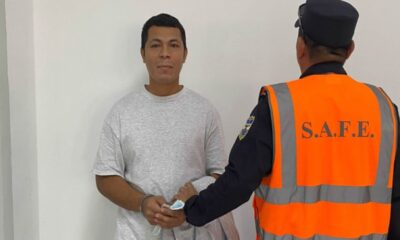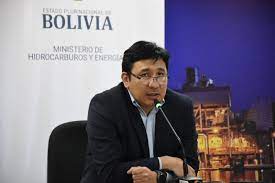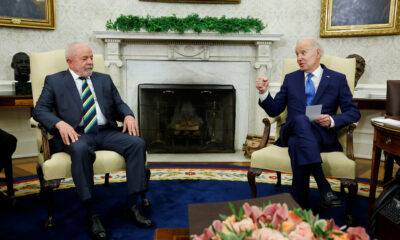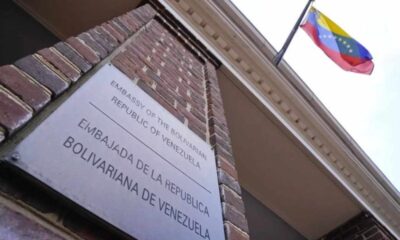International
US bets on new approach to anti-drug policies in Latin America
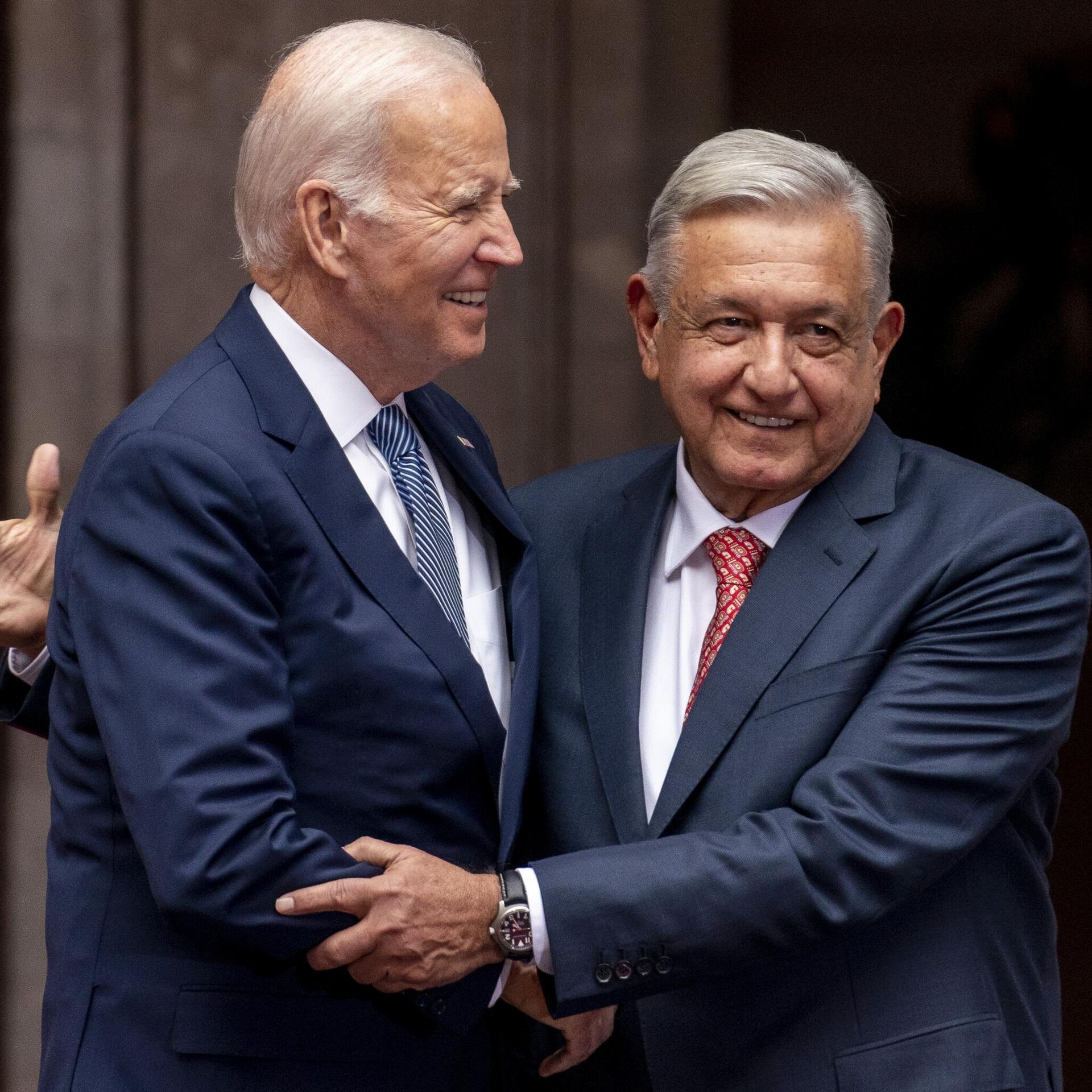
February 14th |
The Biden administration will redouble its domestic efforts and binational cooperation with Mexico to combat the fentanyl crisis in the United States, which has resulted in 70,000 overdose deaths annually.
In an interview with Voice of America, the director of the White House Office of Drug Control Policy, Rahul Gupta, indicated that the fentanyl crisis “does not begin or end at the border”, despite the fact that, according to official data, the vast majority of the synthetic opioid is produced by Mexican cartels and enters the country through the southern border.
The U.S. Drug Enforcement Administration (DEA) reported seizing enough fentanyl in 2022 to potentially have killed the entire U.S. population.
Gupta acknowledged that “there is no question” that “mistakes have been made in the past,” referring to U.S. anti-drug policy and its cooperation with countries in the Western Hemisphere. His statement is an alternate response to the position of Colombian President Gustavo Petro, who has called the anti-drug policy of several U.S. administrations “a failure”.
Question: What are the next steps this administration will take on the fentanyl crisis?
Answer: It is a priority for President Biden. When he went to Mexico to talk to President Lopez Obrador, as well as Prime Minister Trudeau, this was one of the most important things he also talked about. It’s important that we make sure that we have educational campaigns, especially so that children are aware and understand that they have the power not only to be aware of this deadly threat, but also to have Naloxone, the antidote, so that they can help their friends and others. In addition, making sure that we have the treatment available to everyone who needs it – we know that too many Americans today cannot get the treatment – then, along with the antidote, getting more people treated.
In this administration, President Biden highlighted how we have reached the highest levels of fentanyl seizures at the border, double that in 2020 and four times that in 2019. Why? Because we have implemented technology to be able to detect more. But the problem doesn’t start or end at the border. We have to work with Mexico. We have to work with them because we have a shared responsibility for the safety, security and health for the people of both countries.
What exactly is Mexico’s role in this strategy?
Mexico has a very important role as our neighbor to the south, as well as a long-time partner. Our relationship is often complex, but we know that people in Mexico are dying from overdoses and fentanyl intoxication just as they are in the United States. So, it’s very important that we work with a shared sense of responsibility, make sure that we are working to protect our country, that we are going after the bad actors who are intent on harming Americans and Mexicans.
At the same time, we are working to improve public health treatment and the antidote Naloxone, or Narcan, and make it available to anyone who needs it.
When President Biden says the U.S. will hold producers and traffickers accountable here in the U.S., how much does the U.S. trust Mexico on this issue?
It’s very important. As you know, in this administration we have some of the highest numbers of extraditions. We have made sure that we provide assistance to Mexico, in partnership, as a key player in helping us, but we also want to make sure that traffickers, manufacturers and others are held accountable for their actions in taking advantage of vulnerable people. This is important because we want to make sure that they do not profit at the expense of unsuspecting people dying and being poisoned. So it is important, whether in the United States or across the border, that our governments hold bad actors accountable in a strong way.
How close or far do you think the United States is from reversing the trend of fentanyl overdose deaths?
If you look at it, we’ve had over 107,000 [deaths]. And, clearly, the numbers were rising before the pandemic and were exacerbated during the pandemic for obvious reasons, like social isolation, the initial shutdown of treatment and all of that. During the pandemic, especially with President Biden’s leadership, what we’ve seen is more telehealth, which means more health care assistance to provide treatment to people in rural areas, in underserved communities through telemedicine.
We also saw the removal of barriers. And we have also seen an increase in prescribing of antidotes and treatments. Because of some of these activities, combined with the seizure of more fentanyl and the prosecution of traffickers, we are seeing in five months in a row a decrease in the number of people dying from fentanyl overdoses. But let me tell you, that’s not enough, because, while we’re happy to see nearly 3,000 lives saved, we have a long way to go.
Does this White House believe that the war on drugs is a “failed campaign,” as the president of Colombia has called it?
Let me tell you this: when President Petro took office in Colombia early last year, I helped him and worked with him as the first U.S. delegation. We had a good long conversation about it, and I said, “look, we recognize that not all U.S. policies have proven to have been successful, but the important part is that we have a problem where an American dies every five minutes all day long. You have a problem where the economy is very dependent on cocaine production. We need to work productively in our 200-year relationship to see how we can secure a future for both the American people and the Colombian people in a way that complements each other.
And we need to see a way forward that is humane, that protects the environment. Because I flew over with Vice President Marquez and I saw the destruction of illegal mining in the Amazon, illegal crops, and it’s not helpful for Colombians, even because they are looking for a good life, good quality of life. So, it is very important for us when we think about this, to do it in a way that is productive and that is mutually beneficial for security and health.
But would you call the war on drugs a “failed campaign”?
The way I would put this would be: we didn’t even know a few decades ago that addiction was a brain disease. We didn’t know that it is not a disease of choice but a disease of the brain that affects the whole body. We also didn’t know, we now know, that incarcerating yourself doesn’t get you out of trouble. So what are we doing now? We are trying to work to bring treatment to every prison and jail in the United States.
So, what I would answer is very clear, mistakes have been made in the past, there’s no question about that. However, what we need going forward is to look at how we work with public health, public safety, collectively to solve this for Americans, solve this for other people and countries around the world, and the urgency demands that we do it, and we do it in a hurry.
And how do you frame this strategy on drug producers in Colombia and other countries in the Western Hemisphere? Because here in the United States, of course, there is a framework on the public health issue, but they are also trying to catch the bad actors in this. So how do you find that part of this strategy?
When you look at a single mother in Tumaco, Colombia, who is producing coca for her children as a way of life to survive, it’s not so much about crime as it is about livelihood. So, the way we look at this is that we have to make sure that these farmers have the ability to own their own land. Let’s make sure that they have the ability to grow crops that can be exported globally and that they can make a living. It’s very important that as President [Biden] talks a lot about jobs and the importance of jobs, infrastructure in the United States, it’s the same in a way for every country in the world that we have to figure out how to get people gainfully employed, give hope and the ability to have that economic development as a way to address that. And those are exactly some of the things that we’re going to be working with countries like Colombia.
What about the other countries in the Western Hemisphere? How is cooperation on this drug issue?
We know that trafficking and smuggling is a hundreds of billions of dollars business. We know that drugs not only kill Americans, but the profits come back to cause destabilization, more crime and corruption and violence [in those countries]. It’s very important to us as a world leader that we continue to work as good partners with other countries in Latin America. And there is a history of us working with them, but we make sure that we are doing it in a way that gives us results, mutual respect and cooperation so that we can put the weight of the law on the bad actors, while ensuring that people everywhere have the opportunity to live in a safe and healthy way.
And finally, what about Venezuela? There is no relationship or cooperation between the two governments, of course, but Venezuela remains a key player in this industry.
Well, we will continue to focus with our partners in Colombia, and also in Ecuador, to make sure that the people there get the support in terms of both the people coming from Venezuela and the resources. That work will continue, but I don’t have anything new to report on that at this point from a policy change perspective.
International
Chile declares state of catastrophe as wildfires rage in Ñuble and Biobío

Wildland firefighting crews are battling 19 forest fires across the country, 12 of them concentrated in the Ñuble and Biobío regions, located about 500 kilometers south of Santiago.
“In light of the severe fires currently underway, I have decided to declare a state of catastrophe in the regions of Ñuble and Biobío. All resources are now available,” the president announced in a post on X.
Authorities have not yet released an official report on possible casualties or damage to homes.
According to images broadcast by local television, the fires have reached populated areas, particularly in the municipalities of Penco and Lirquén, in the Biobío region, which together are home to nearly 60,000 people. Burned vehicles were also reported on several streets.
“The Penco area and the entire Lirquén sector are the most critical zones and where the largest number of evacuations have taken place. We estimate that around 20,000 people have been evacuated,” said Alicia Cebrián, director of the National Disaster Prevention and Response Service (Senapred), in an interview with Mega TV.
In recent years, forest fires have had a severe impact on the country, especially in the central-southern regions.
On February 2, 2024, multiple wildfires broke out simultaneously around the city of Viña del Mar, located 110 kilometers northwest of Santiago. Those fires resulted in 138 deaths, according to updated figures from the public prosecutor’s office, and left approximately 16,000 people affected, based on official data.
International
Former South Korean President Yoon sentenced to five years in prison
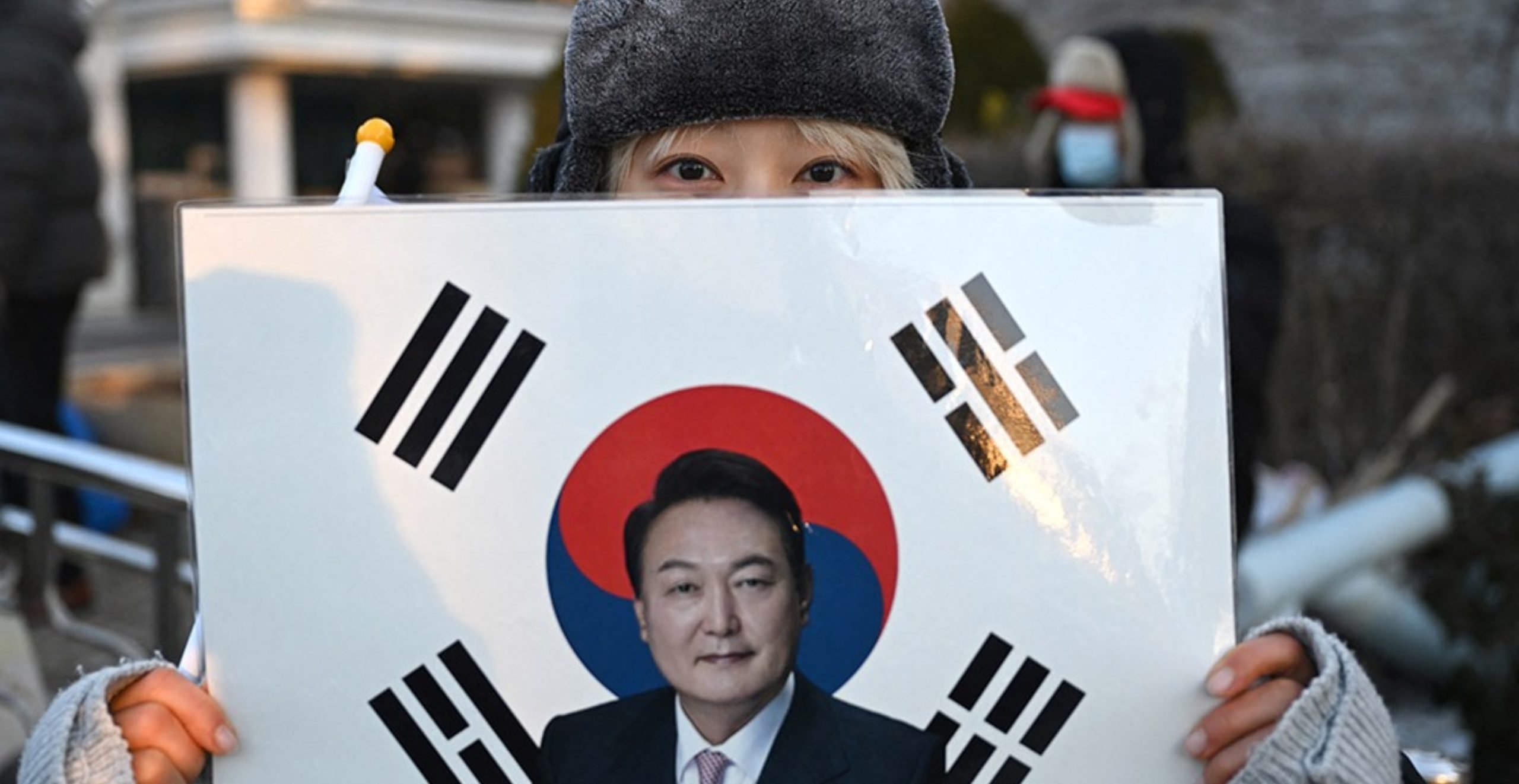
Former South Korean president Yoon Suk-yeol was sentenced on Friday to five years in prison for obstruction of justice and other charges, concluding the first in a series of trials stemming from his failed attempt to impose martial law in December 2024.
The sentence is shorter than the 10-year prison term sought by prosecutors against the 65-year-old conservative former leader, whose move against Parliament triggered a major political crisis that ultimately led to his removal from office.
Yoon, a former prosecutor, is still facing seven additional trials. One of them, on charges of insurrection, could potentially result in the death penalty.
On Friday, the Seoul Central District Court ruled on one of the multiple secondary cases linked to the affair, which plunged the country into months of mass protests and political instability.
International
U.S. deportation flight returns venezuelans to Caracas after Maduro’s ouster
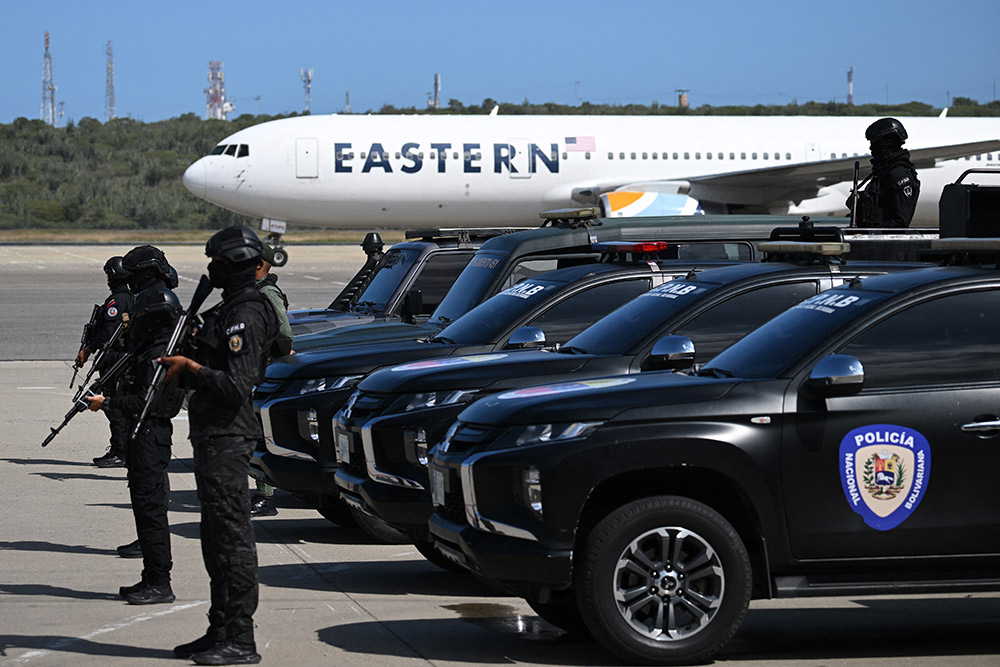
A new flight carrying 231 Venezuelans deported from the United States arrived on Friday at the airport serving Caracas, marking the first such arrival since the military operation that ousted and captured President Nicolás Maduro.
On January 3, U.S. forces bombed the Venezuelan capital during an incursion in which Maduro and his wife, Cilia Flores, were captured. Both are now facing narcotrafficking charges in New York.
This was the first U.S.-flagged aircraft transporting migrants to land in Venezuela since the military action ordered by President Donald Trump, who has stated that he is now in charge of the country.
The aircraft departed from Phoenix, Arizona, and landed at Maiquetía International Airport, which serves the Venezuelan capital, at around 10:30 a.m. local time (14:30 GMT), according to AFP reporters on the ground.
The deportees arrived in Venezuela under a repatriation program that remained in place even during the height of the crisis between the two countries, when Maduro was still in power. U.S. planes carrying undocumented Venezuelan migrants continued to arrive throughout last year, despite the military deployment ordered by Trump.
-

 International4 days ago
International4 days agoUkraine declares nationwide energy emergency amid russian attacks and extreme cold
-

 International2 days ago
International2 days agoU.S. deportation flight returns venezuelans to Caracas after Maduro’s ouster
-

 Central America5 days ago
Central America5 days agoBukele warns crime can become a ‘parallel government’ during visit to Costa Rica
-

 International4 days ago
International4 days agoX moves to block Grok from creating sexualized images of real people amid legal scrutiny
-

 International4 days ago
International4 days agoIran closes airspace amid U.S. threats and deadly nationwide protests
-

 International4 days ago
International4 days agoHillary Clinton skips Epstein inquiry as house panel threatens contempt charges
-

 International4 days ago
International4 days agoFrance joins Denmark’s ‘Operation Arctic Resistance’ in Greenland amid U.S. tensions
-

 International3 days ago
International3 days agoCanada accuses Iran of killing its citizen during anti-government unrest
-

 Central America1 day ago
Central America1 day agoGuatemala prison uprisings leave 46 guards held by gangs
-

 International4 days ago
International4 days agoU.S.–Denmark tensions escalate as Trump pushes NATO to back U.S. claim on Greenland
-

 International4 days ago
International4 days agoUK Intelligence estimates russian casualties in Ukraine at over 1.2 million
-

 International4 days ago
International4 days agoSwiss Canton of Valais Grants Emergency Aid to Victims of Crans-Montana Bar Tragedy
-

 International3 days ago
International3 days agoSheinbaum highlights anti-drug gains after U.S. says challenges remain
-

 International5 days ago
International5 days agoU.S. to suspend visa processing for applicants from 75 countries
-

 International1 day ago
International1 day agoChile declares state of catastrophe as wildfires rage in Ñuble and Biobío
-

 International2 days ago
International2 days agoFormer South Korean President Yoon sentenced to five years in prison





























